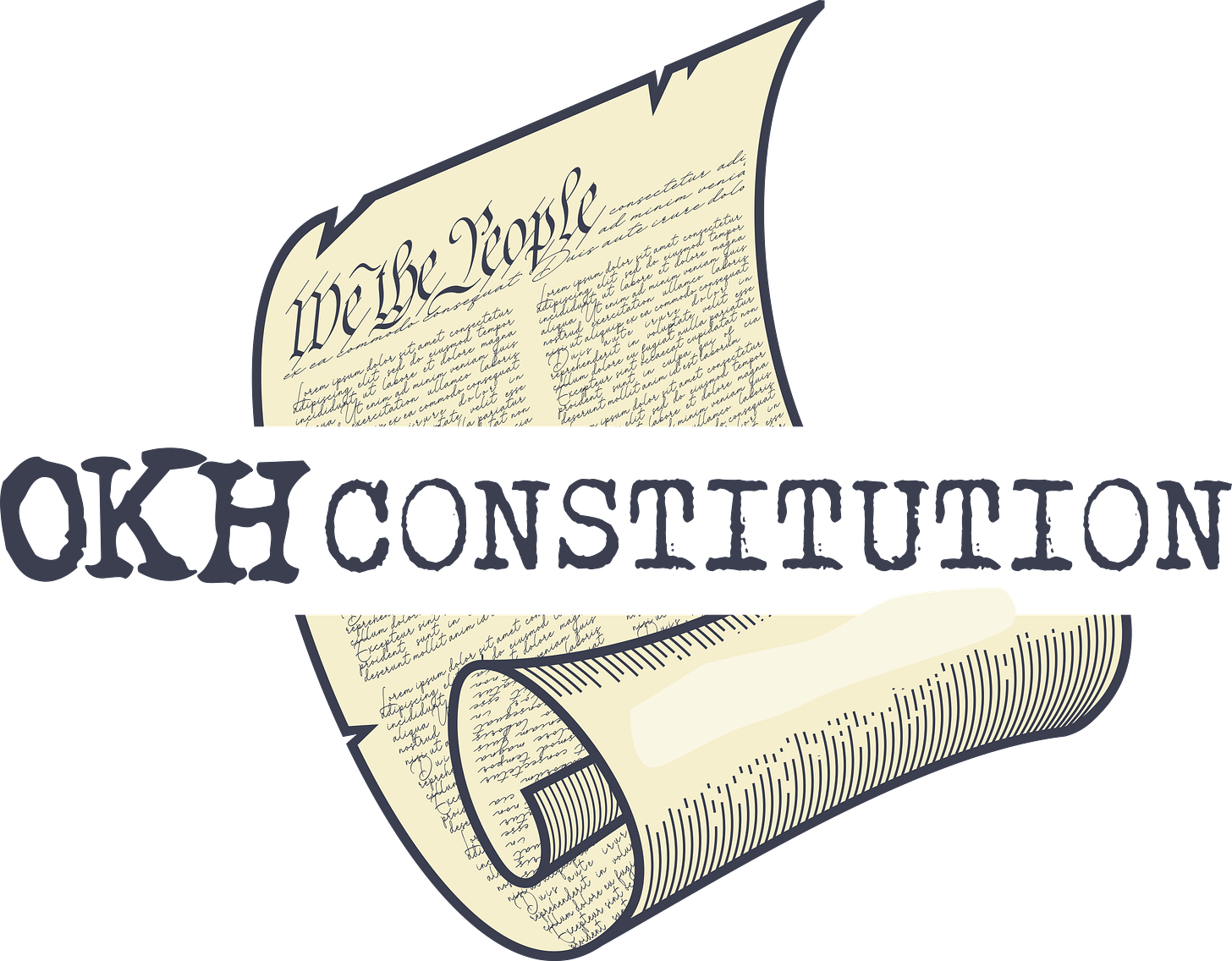Patience versus Tolerance
Read more about how my help of a young person is like amending the Constitution.
I recently had a conversation with a young woman looking to network. This sorta of thing happens daily here in DC, as I’m sure in other big cities. I didn’t do it much when I was her age, and when I did, I never felt I did it correctly. But I am always happy to help now that I’m older and wiser.
This woman, whom I will call Sandy to protect her identity, was at a crossroads in her early career. She liked her job, yet longed for something better, something more fulfilling, and was interested in learning how to move away from a job she found to be too constraining. So Sandy looked for someone with experience, knowledge, and depth who also enjoyed talking about himself for about two hours.
It was only natural that we would connect.
One crucial insight I shared about my career, which, to paint a picture, has mostly been a wild roller coaster you never actually wanted to ride, was the difference between having patience versus what you can tolerate.
My current job, which I like, but like Sandy, I long for something better, is a good example of what it means to be patient versus what I can tolerate.
Now to be clear, the word tolerate might seem a bit aggressive. I’m a white, straight male who believes that a Middle Eastern preacher from a small town in Judea who lived 2,000 years ago is my God; my tolerance isn’t challenged regularly.
One way I practice patience is by developing a specific skill set in my field and a client base that helps me stand out in a large firm filled with many people on the same roller coaster as I am. This is going to take time.
But I couldn’t tolerate moving to another city for months as I used to do when I started out. But the job allows me to have an entrepreneurial attitude when I approach my work, so I focus more on the patience part. At the same time, my employer underpays while extracting gobs of money from clients who appreciate my work.
Yeah, I went on like this for two hours with Sandy. It was brilliant.
Anyway, I feel our nation’s history of resolving our challenges by amending the Constitution is one instrument we use to balance what we will be patient about versus what we can or cannot tolerate.
This brings us to our following amendment, the Twenty-Fourth - the you can’t tax people to vote, amendment.
After winning the Civil War, our reward was to allow the Confederacy to be complete jerks. We were patient until we couldn’t tolerate their foolishness. Like when we passed an amendment that has yet to be ranked that gave black men the right to vote, the Southeastern Conference turned around and implemented laws that prevented them from voting – one way was to force people to pay a tax at the polling station to vote.
Like our jobs, we liked our country but longed for something better. So how can we achieve it, preferably without two-hour lectures?
Let’s dive in and see if we moved in the right direction.
16: Amendment XXIV
Its purpose: No one can be denied voting for federal representation because of failing to pay a poll tax.
Year proposed: 1962
Year Ratified: 1964
The Good:
I will mix things up here and reference the Supreme Court here for once.
Even though this amendment explicitly calls out the illegalness of poll taxes in federal elections, since its passage, the Court has ruled that it applies to measures disguised as poll taxes. They even decided that states couldn’t tax people to vote in their elections either.
In Harman vs. Forssenius, the Court stated that Virginia couldn’t pass laws that provided an out clause for paying a poll tax by filing paperwork to get a certificate saying they lived in Virginia. I guess being on the voting rolls wasn’t enough. Virginia said you had to do this six months before an election and bring this piece of paper when you came to vote.
Also, the court struck down the idea that states could continue with poll taxes for state elections in the Harper vs. Virginia State Board of Elections.
Despite being a highly ranked state, Virginia walked away 0-2 in poll taxes. That’s pretty good.
The Bad:
We should call this section the Supreme Court Section because the Supreme Court is always the subject of whatever is bad when it comes to the passage of an amendment.
This time, the Court, led by Charles Hughes, whom I profiled once back in an earlier edition of an Ask Me Anything, ruled that states could decide whatever prohibitions they wanted to put on their citizens when it came to voting, as long as it didn’t violate the amendments I haven’t ranked that allowed very specific groups of people the right to vote which they were denied for simply being a very specific group of people.
The Court wanted us to tolerate the idea that poll taxes were fine since they applied to everyone. Since, in theory, everyone was capable of handing over a dollar to vote in 1890.
The Ugly:
We shouldn’t tolerate any means used to prevent any specific group of people from voting. But it got pretty ugly in Jim Crow Confederate Land of Confederates.
After Reconstruction and the federal government pulled troops out, the Jim Crowers got to work coming up with a litany of ideas that, in their minds, probably made them seem wise.
The poll tax was one where southern states argued that even though it prevented overwhelmingly poor black men from voting, it also prevented poor white people from voting. They also disenfranchised Indigenous people and Asian- Americans. See how equal they are!
Remember Jim Crow laws? The idea of separate but equal was the law of the land since 1896, so all of this was perfectly legal.
They backed up this equality with violence or the threat of violence, which got pretty ugly.
Who proposed it?
The 87th Congress. I don’t know the specific legislator who initially pushed this forward, but the poll tax was an issue for many decades leading up to its passage in 1962, where the House voted 295-86 in favor, followed by a 77-16 vote in the Senate.
Tennessee was the first former Confederate state to ratify it in 1962. Mississippi rejected the amendment, and Arkansas, Georgia, Louisiana, and South Carolina have yet to ratify it. Heck, Texas ratified it in 2009, so it can be done even though it is law.
Why did I rank it here?
When I started looking at the Amendments, the Twenty Fourth threw me for a loop. Did we need an Amendment to stop poll taxes? It seems to be a little aggressive, perhaps we could have figured this out legislatively, but then again, laws get challenged in Court, and the Court showed us and continues to show us they can screw up stuff. The only way to change it permanently is to amend the Constitution.
There’s nothing more important than voting because voting can lead to positive change, but the Twenty-Fourth Amendment doesn’t feel like a top 15 amendment because there are good ones still on the board. But important enough to be 16th.
Okay, let me know what you think of my ranking.
Do you agree with the premise of looking at things as a choice of being patient versus being tolerant? Or did Sandy waste about two hours of her life, mostly with an empty cup of coffee, wondering why on earth did she agree to meet with me?
With vacations out of the way and the subsequent work trip not for another few weeks, I have time to focus on some necessary priorities. I have broken them down into three categories, in no particular order:
· Clean and straighten my closet and drawers. This is mainly for Anonymous to not schedule events over the next few weeks. I need to audit everything and get stuff to Goodwill.
· Work on my golf game. I’ve been playing a lot of golf since the Fall of last year. My handicap is 23, which is okay.
· Develop the next Okay History project. Which I am very excited about. You’ll be hearing more about this in the coming months. Literally.
The Maundy Monday Newsletter will return in its usual spot. I have to stay indoors because the planet is melting, and I can’t go outside to walk or work on my golf game. Intolerable really.
I appreciate your patience in waiting for the following amendment ranking and, generally, for your support of Okay History. We are over halfway through the year, so I will need to pick up the pace, and I am beginning to think about what to rank in Year Four.
If you have any ideas of what piece of US History I should rank beginning in February 2024 that you would like to share, please drop them below in the comment section or email me at chris@okayhistory.com.
Until then, have a wonderful weekend.
Okay,
Chris





Would you agree that gerrymandering violates this constitutional amendment?